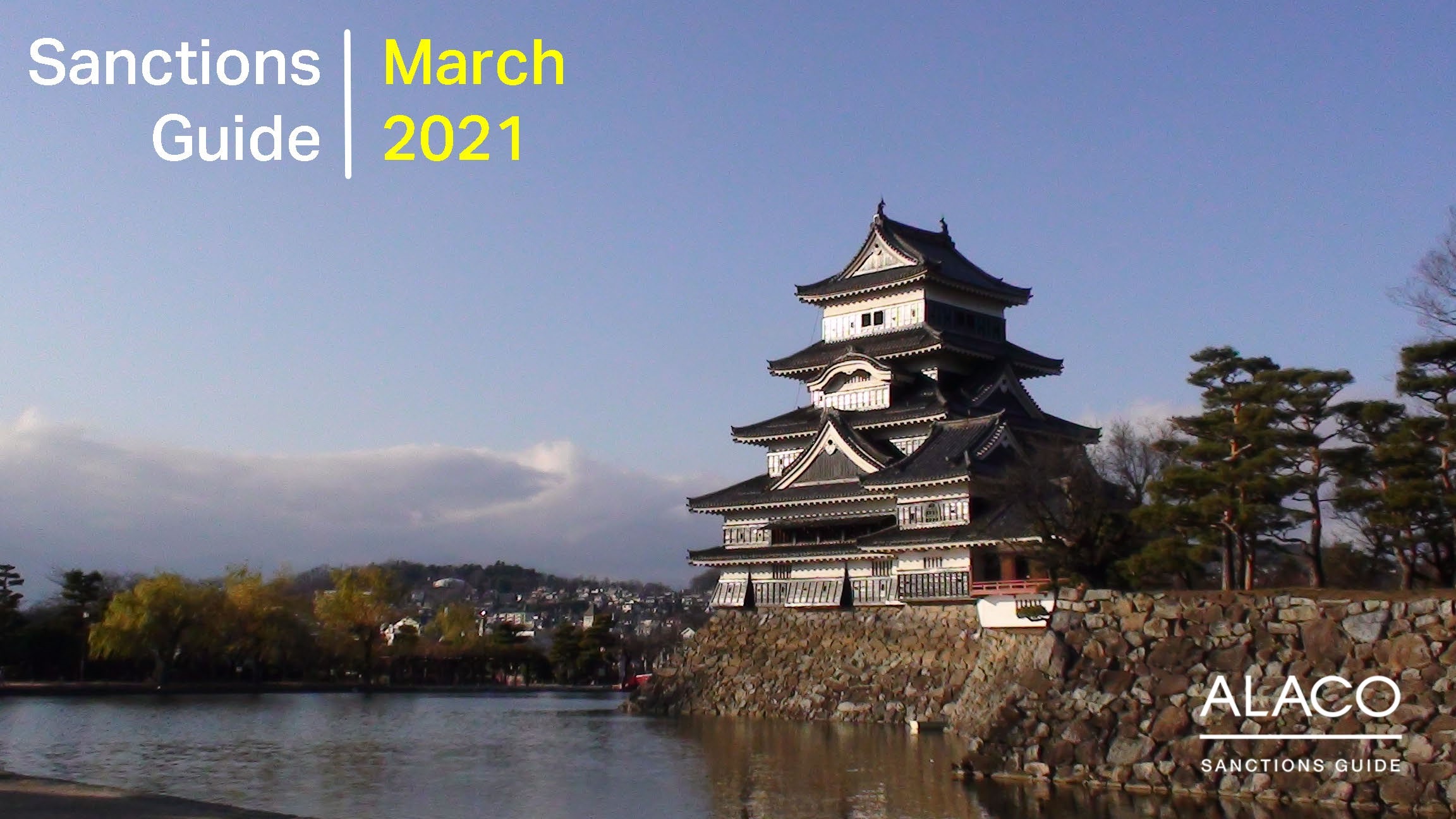Key developments this month include new sanctions imposed by the UK and US in response to the coup in Myanmar, further EU measures against Russia following the sentencing of Alexei Navalny and the reversal of the short-lived designation of the Houthis as a terrorist organisation.
- A military coup in Myanmar enacted on 1st February 2021 has drawn widespread international condemnation. The UK and the US have responded by introducing further sanctions against the country’s military and police leadership. Nine senior officials were sanctioned by the UK on 18th February, while the US has added 12 individuals to its Myanmar programme over the course of the month. In addition, the US measures target three Burmese gem companies. The initial US measures have been described as fairly restricted, although US officials have indicated that their severity will be increased unless Myanmar changes course and suggested that some of the country’s principal military-controlled conglomerates could be sanctioned.
- The recent two-and-a-half-year prison sentence imposed against Russian opposition leader Alexei Navalny, widely believed to have been politically motivated, has resulted in the EU sanctioning four senior Russian security services officials. The move, which represents the first usage of the EU’s newly implemented human rights abuses programme, has been criticised in some corners due to the limited number of individuals targeted.
- The US is reported to be preparing a new package of sanctions measures aimed at Russia following its alleged hacking of IT security company SolarWinds, which gave it access to US government networks as well as a number of private companies. The US response has been described as including typical sanctions measures, although officials have hinted at a wider strengthening of the country’s stance towards Russia.
- US sanctions have failed to halt the laying of pipelines in German and Danish waters for the nearly completed Nord Stream 2 project, although in February 2021 a host of Western insurance partners exited the project. The Biden administration has signalled its willingness to reach a compromise with Germany over Nord Stream 2, although no breakthrough has yet been reported.
- President Biden has committed to maintaining stringent US sanctions on Iran until the country ceases its refinement of uranium. However, the re-imposition of the Obama-era JCPOA plan to reduce Iran’s access to nuclear materials is a key plank of the Biden administration’s proposed foreign policy programme. Republican politicians have stressed their strong opposition to any lifting of the measures prior to the Iranian government halting its enrichment programme.
- In a reversal of Trump-era policy, the US government has rescinded the terrorism designation of the armed Yemeni organisation the Houthis, enacted by former Secretary of State Mike Pompeo in January 2021. The Houthis have been engaged in a long-running conflict against forces backed by Saudi Arabia and its allies. The Biden administration indicated it was motivated to remove the designation due to concerns about humanitarian aid reaching the troubled region.
- A further four Zimbabwean senior officials were added to the UK’s sanctions programme on 1st February, representing the first independent action taken by the UK authorities since Brexit. Those sanctioned were implicated in repressing protests in January 2019 which led to 17 civilian deaths.
- Elsewhere, the EU has added a further 19 Venezuelan officials to its sanctions programme and the EU has renewed its measures on senior Belarussian officials for a year in relation to the country’s disputed August 2020 Presidential Election.


